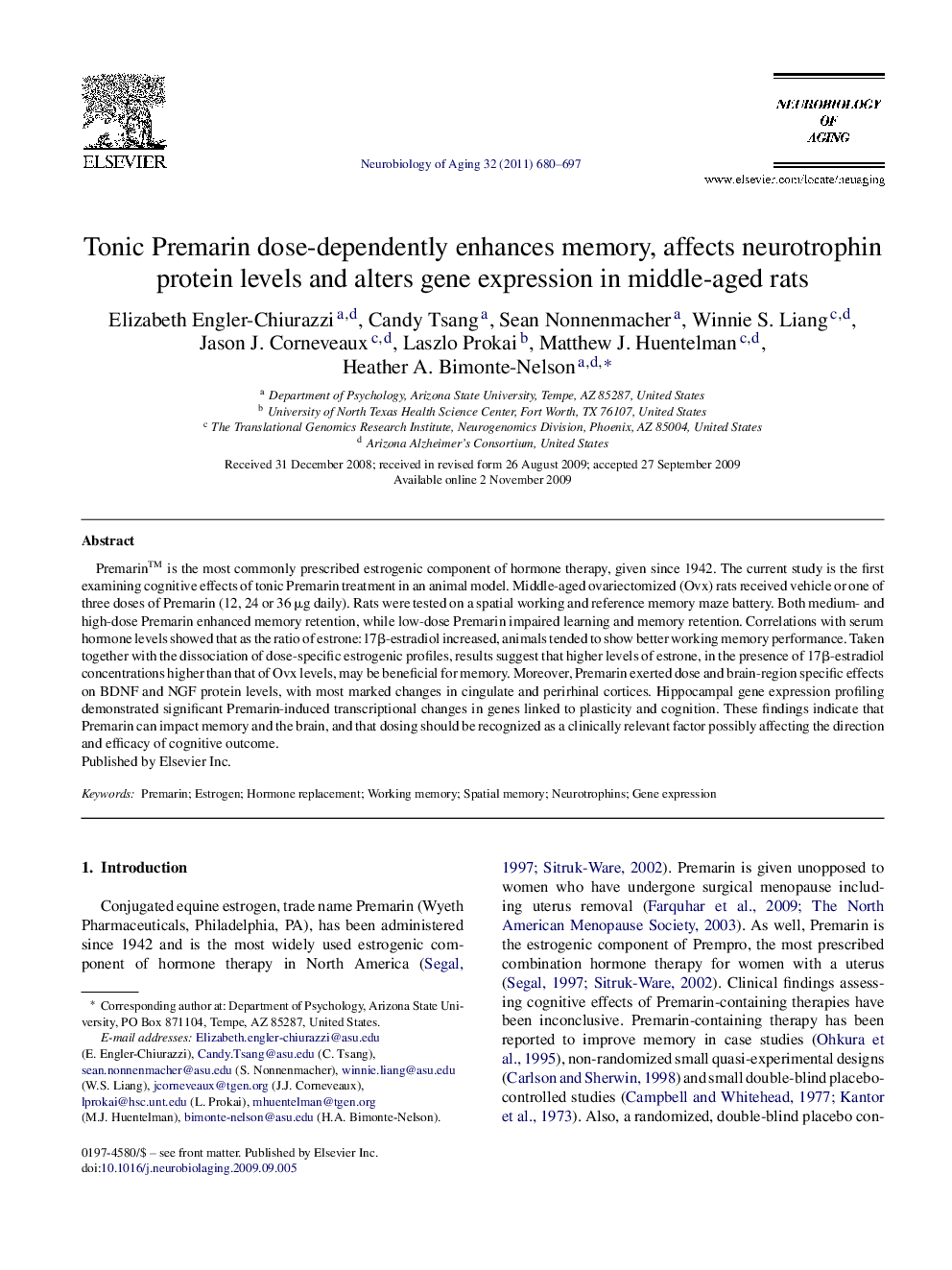| Article ID | Journal | Published Year | Pages | File Type |
|---|---|---|---|---|
| 330957 | Neurobiology of Aging | 2011 | 18 Pages |
Premarin™ is the most commonly prescribed estrogenic component of hormone therapy, given since 1942. The current study is the first examining cognitive effects of tonic Premarin treatment in an animal model. Middle-aged ovariectomized (Ovx) rats received vehicle or one of three doses of Premarin (12, 24 or 36 μg daily). Rats were tested on a spatial working and reference memory maze battery. Both medium- and high-dose Premarin enhanced memory retention, while low-dose Premarin impaired learning and memory retention. Correlations with serum hormone levels showed that as the ratio of estrone:17β-estradiol increased, animals tended to show better working memory performance. Taken together with the dissociation of dose-specific estrogenic profiles, results suggest that higher levels of estrone, in the presence of 17β-estradiol concentrations higher than that of Ovx levels, may be beneficial for memory. Moreover, Premarin exerted dose and brain-region specific effects on BDNF and NGF protein levels, with most marked changes in cingulate and perirhinal cortices. Hippocampal gene expression profiling demonstrated significant Premarin-induced transcriptional changes in genes linked to plasticity and cognition. These findings indicate that Premarin can impact memory and the brain, and that dosing should be recognized as a clinically relevant factor possibly affecting the direction and efficacy of cognitive outcome.
